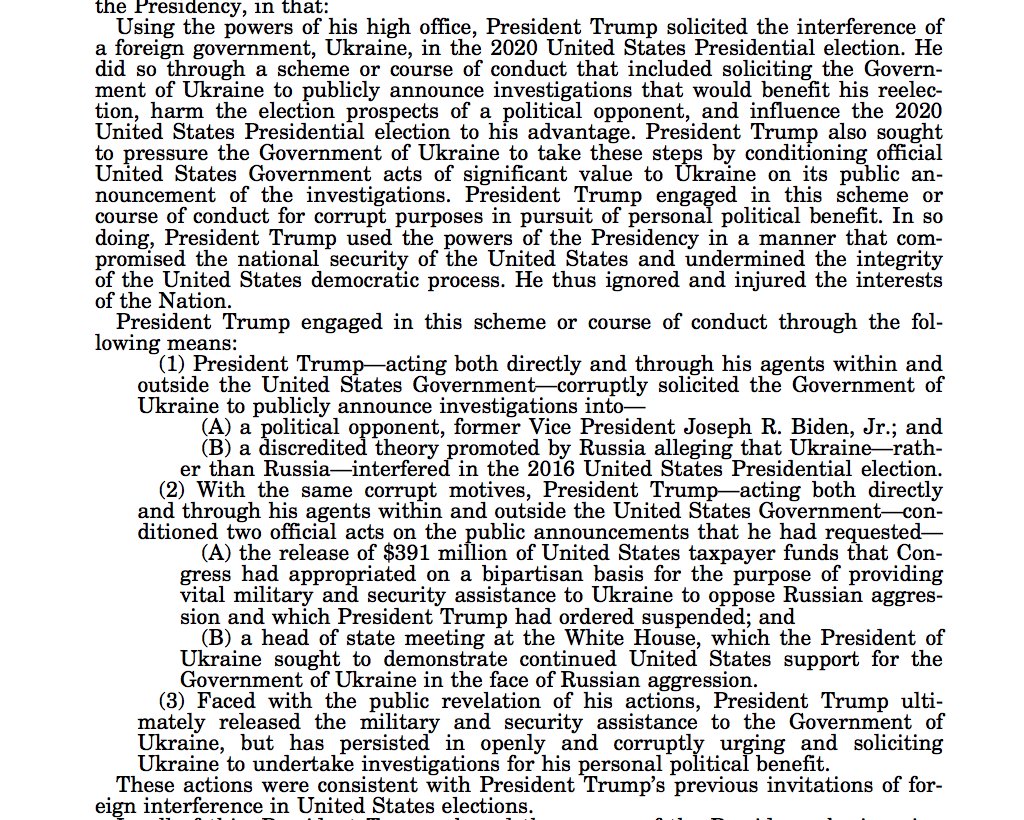@AlanDersh says impeachment requires a crime on the level "treason" or "bribery."
In one respect, he is clearly wrong, but he has a plausible textual point (more below).
*The main problem is that House has alleged bribery.*
Just read the House Report.
1/
Anyone paying a minute of attention to the public debate about impeachment knows that the Framers chose the phrase "high crimes and misdemeanors" from English history because it did not require a statutory felony, but an abuse of power...
In @fedsoc, conservative prof Robert Natelson concisely summarizes Rogers & Young on "High Misdemeanors" as fiduciary violations of office:
fedsoc.org/commentary/pub…
The interpretive canon of Eiusdem Generis ("of the same kinds, class, or nature") tells us to look at the same words in the sentence.
"High crimes and misdemeanors" are clarified by "treason" and "bribery."
The bottom line is that not all "high crimes and misdemeanors" are felonies, but not all felonies are high crimes and misdemeanors.
They have to be serious abuses of power.
But if he obstructed justice as president to hide those past crimes, he may have committed high crimes and misdemeanors...
Constitutional bribery: based on the meaning of bribery in 1787.
Felony bribery: the modern statute.
A "corrupt" quid pro quo, two "official acts" in return for a thing of value (for his "personal political benefit")

I explain why I thought the House did not draft an Article titled “bribery.”
In retrospect, I think they should have. And maybe not sent Obstruction of Congress (as I have explained on Twitter).
vox.com/policy-and-pol…
That’s why it’s important for the a House to choose the best team in con law as well as prosecution experience.
Should have picked @RepRaskin
My favorites are the “faithful execution” point and Edmund Burke, but it’s all good:







